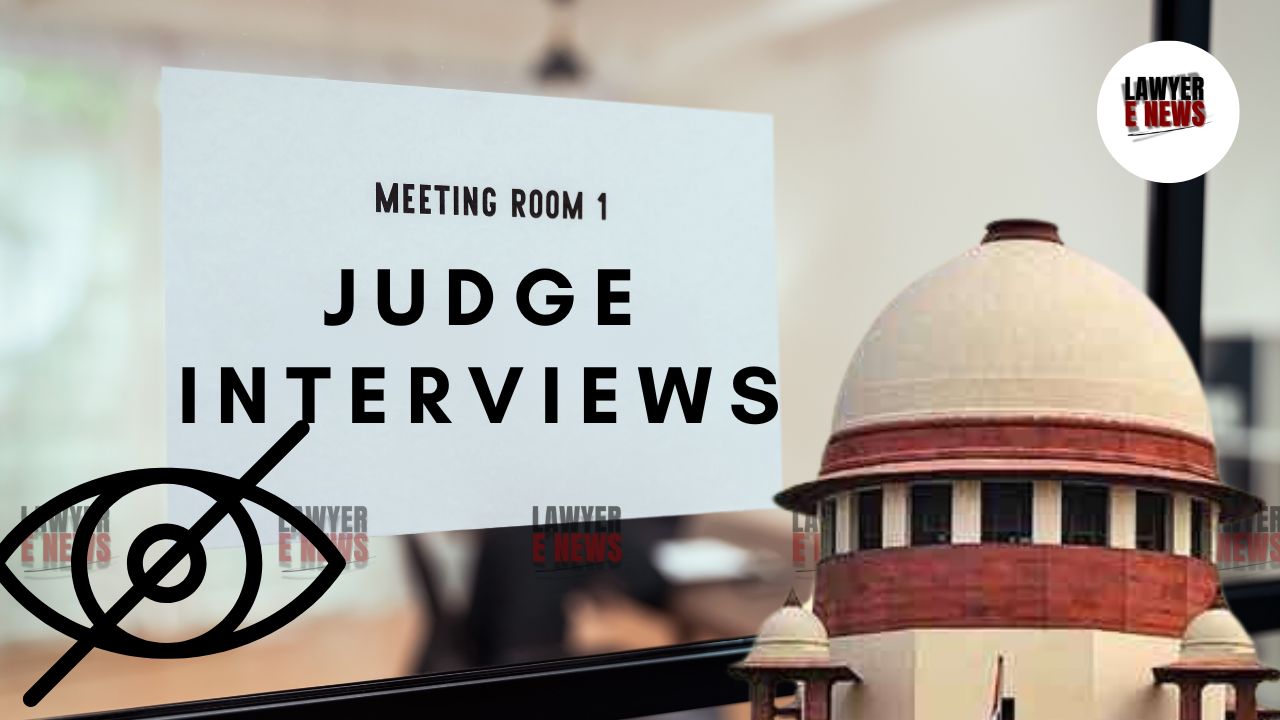-
by Admin
15 February 2026 5:35 AM



Introduction: In a significant development, the Supreme Court of India, on October 24, 2024, directed the Rajasthan High Court to include Siddharth Sharma, a blind candidate, in the ongoing interview process for the recruitment of Civil Judges in Rajasthan. The Court's interim order came after it was revealed that Sharma, despite qualifying under the Persons with Benchmark Disabilities (PWD) category, was not called for an interview due to his categorization under the Economically Weaker Section (EWS). The Court clarified that horizontal reservations for the disabled, including the visually impaired, must cut across vertical categories such as EWS.
The dispute arose from an advertisement issued by the Rajasthan High Court on April 9, 2024, announcing direct recruitment for Civil Judges. Nine vacancies were reserved for Persons with Benchmark Disabilities, with two specifically for the blind and low-vision category. Siddharth Sharma, who belongs to both the PWD and EWS categories, qualified for the Main Examination under the PWD reservation by securing the requisite marks. However, he was not called for the interview, as he failed to meet the cut-off for the EWS category.
The scheme of the examination stipulated that candidates from the SC/ST and PWD categories must secure 30% in each law paper and 35% in aggregate to qualify for the interview. Sharma had met this criterion but was still excluded from the interview shortlist.
Legal Issues at Hand: The primary issue was whether Siddharth Sharma, who qualified under the PWD category but failed to meet the EWS cut-off, should have been called for the interview. Sharma's counsel argued that reservations for persons with disabilities (PWD) are horizontal in nature and should cut across vertical reservations like those for EWS, SC, ST, or OBC. The exclusion of Sharma, despite his qualification under the PWD category, was thus in violation of the law on horizontal reservations.
Key Observations of the Court:
Horizontal Reservations for Disabled Candidates: The Court referred to its landmark ruling in Indira Sawhney v. Union of India (1992), which had clarified the distinction between vertical and horizontal reservations. While vertical reservations pertain to categories like SC, ST, and OBC, horizontal reservations—such as those for persons with disabilities—cut across these vertical categories. The Court reiterated that PWD candidates selected under horizontal reservations should be placed in their respective vertical category (e.g., EWS, SC, ST) after selection.
Eligibility Criteria: The Court observed that Sharma had met the eligibility criteria stipulated under the proviso to clause 23 of the scheme of examination for the PWD category. He secured the requisite marks to qualify for the interview, and therefore, his exclusion based on his EWS category status was not justified.
Directive to Include Sharma in the Interview Process: Since the interviews were scheduled to conclude on October 26, 2024, the Supreme Court directed the Rajasthan High Court to include Siddharth Sharma in the ongoing interview process. He was to be duly assessed by the Committee.
Future Proceedings: The Court directed the respondents to file their counter-affidavit by November 1, 2024, and scheduled the matter for a further hearing on November 4, 2024.
Conclusion: This interim order by the Supreme Court reinforces the importance of horizontal reservations for persons with disabilities, ensuring they are not sidelined based on their vertical category. The decision allows Siddharth Sharma to participate in the interview process and keeps the door open for further deliberations on the matter after the interview process concludes.
Date of Decision: October 24, 2024
Siddharth Sharma v. High Court of Judicature at Rajasthan & Anr.
